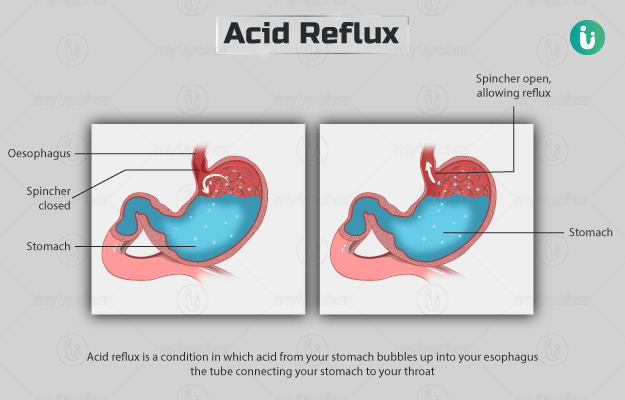Acid reflux is also known as heartburn, as it is usually felt as a burning sensation in the lower chest. People with this condition may experience chest pain (in the middle of the chest), a sour or bad taste in the mouth, bad breath and hoarse voice. Sometimes an itchy throat can be a sign of "silent" acid reflux, meaning that the patient doesn't show any other signs of heartburn.
Despite being called heartburn colloquially, acid reflux has nothing to do with the heart. As the name suggests, acid reflux occurs when some of the hydrochloric acid from the stomach comes up into the food pipe.
Most of us have experienced the unpleasantness of acid reflux at least once in our lives (read more: Acid reflux in babies). But if you routinely get acid reflux while sleeping or if you have acid reflux along with symptoms like sore throat and persistent dry cough, you should see a doctor for it.
Sometimes a small amount of acid can irritate the throat—this may occur even if the diagnostic tests come back negative for acidity problems like gastroesophageal reflux disease or GERD.
Some factors that increase the risk of acid reflux include lifestyle factors like obesity and smoking and life stages like pregnancy. (Read more: Acidity during pregnancy)
Diagnosis is usually done based on the symptoms and tests like pH monitoring. Treatment can vary from taking an over-the-counter antacid to longer-term treatment.
Read on to know more about the symptoms, causes, diagnosis, treatment and lifestyle changes for acid reflux.

 Doctors for Acid reflux
Doctors for Acid reflux  OTC Medicines for Acid reflux
OTC Medicines for Acid reflux



































